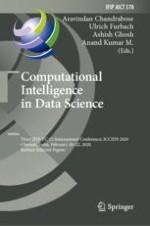
2020 | OriginalPaper | Buchkapitel
Emotion Recognition in Sentences - A Recurrent Neural Network Approach
verfasst von : N. S. Kumar, Mahathi Amencherla, Manu George Vimal
Erschienen in: Computational Intelligence in Data Science
Aktivieren Sie unsere intelligente Suche, um passende Fachinhalte oder Patente zu finden.
Wählen Sie Textabschnitte aus um mit Künstlicher Intelligenz passenden Patente zu finden. powered by
Markieren Sie Textabschnitte, um KI-gestützt weitere passende Inhalte zu finden. powered by